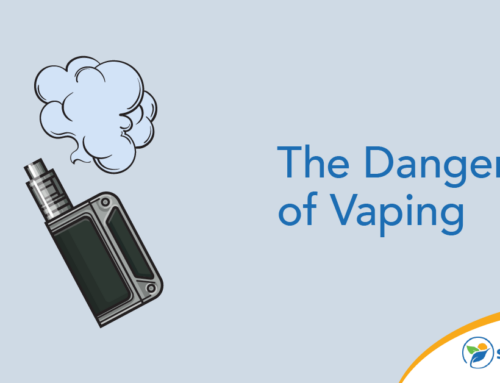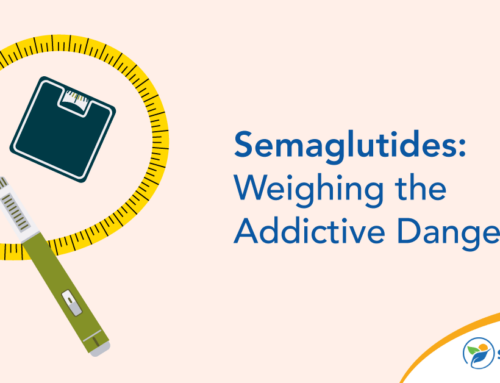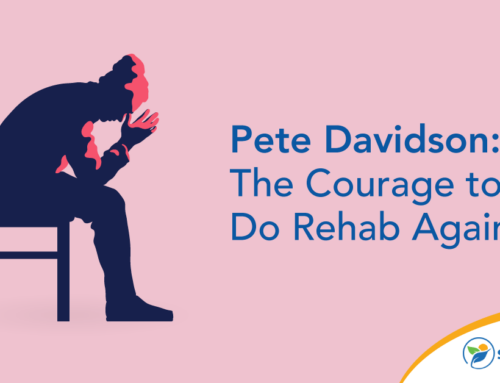Alcohol use disorder (AUD) affects millions of people every year. According to the 2021 National Survey on Drug Use and Health, some 29.5 million Americans aged 12 or older reported suffering from alcohol dependency in the previous year.
Of the wide variety of treatments for this disorder, one of the leading medical options is acamprosate, also known as acamprosate calcium and formerly sold in the United States as Campral.
Although it’s generally a safe and effective medical option, acamprosate can still cause certain side effects, usually mild but occasionally more serious. This article introduces acamprosate and summarizes these effects, how to manage them and when to seek out medical guidance.
What Is Acamprosate?
Acamprosate tackles the changes to brain chemistry that come from the long-term consumption of alcohol in large amounts. For use by individuals who’ve recently quit drinking, its purpose is to help people in recovery stay sober by restoring the balance in their brain chemistry. It’s often used in combination with behavioral therapy, counseling support and social supports to reinforce the recovery journey and help prevent relapse.
So, what is acamprosate? The specifics of how the drug works aren’t fully known, but experts believe it repairs damage to the functioning of the brain’s neurotransmitters by reducing a state of excessive excitation produced by dependence on alcohol. It’s similar in structure to taurine and gamma-aminobutyric acid (GABA) and seems to target receptor activity associated with those neurotransmitters. Its supply of calcium is also believed to play a role.
Acamprosate in Addiction Recovery
It should be noted that acamprosate doesn’t prevent or treat withdrawal symptoms — it’s not likely to be effective for those who haven’t completed detox and stopped drinking entirely. Additionally, it’s not intended for use by those who are dependent on substances other than alcohol.
For those in addiction recovery who are ready to start using acamprosate, the drug comes in the form of a delayed-release tablet that can be taken with or without food three times a day. Even if you feel you’re not at risk of relapsing after a significant amount of time, you should still consult a doctor before stopping acamprosate. The medication will only be helpful as long as you take it regularly.
Someone who relapses while taking acamprosate should continue taking it and contact their doctor, as it won’t produce unpleasant reactions with the alcohol. Still, acamprosate has been associated with a few common side effects you may need to manage.
Common Side Effects and Their Impact
Acamprosate (or Campral) side effects tend to be relatively mild. If any of these side effects prove persistent or disruptive, be sure to contact your doctor.
These effects can include:
- Gastric complaints such as diarrhea, gas, upset stomach and/or loss of appetite
- Dizziness, weakness and/or nausea
- Dry mouth
- Itching
- Sweating
- Anxiety
- Insomnia
Some of these side effects are similar to the effects of overdosing on acamprosate or overconsuming the medication over a long period of time. If you’re experiencing severe diarrhea or otherwise believe you’re at risk of overdose, contact a poison control hotline immediately.
Keep an eye out for these symptoms of overusing acamprosate:
- Appetite loss, upset stomach and/or constipation
- Extreme thirst
- Tiredness and/or muscle weakness
- Restlessness and/or confusion
- Incoherent speech
- Vomiting
- Metallic taste in mouth
If you experience these, reach out to your doctor right away. They may adjust your dosage or recommend alternative treatment options.
Less Common But Serious Side Effects to Be Aware Of
More serious side effects of acamprosate/Campral drugs are rare but can be signs of an emergency. These may include:
- Burning, tingling or numbness in your hands, feet, arms or legs (also called paresthesia)
- Rash, hives or other signs of allergic reaction, such as difficulty breathing or swelling of the face, lips, tongue or throat
- Severe anxiety or depression
- Mood swings or behavior changes
- Thoughts of suicide or self-harm
- Kidney problems such as swelling, urinating less, fatigue or shortness of breath
If you suspect you may be experiencing serious side effects from acamprosate, make sure to seek out medical attention and support as soon as possible.
Managing Acamprosate Side Effects and Seeking Medical Guidance
Mild side effects are common when you’re taking a new medication, and acamprosate is no exception. These effects can be part of your body’s adjustment to a new normal. Still, if you experience any changes in your day-to-day life, it’s a good idea to relay them to your care provider. If the symptoms are mild, they may have advice for how to prevent or reduce some of your side effects. If the symptoms are severe, they can help connect you to emergency care and guidance.
Remember that acamprosate can’t cure alcohol dependency on its own. The medication will be most effective as a part of a larger recovery program that provides you with a full range of therapeutic, social and clinical supports. Before taking acamprosate, as with any other drug, you should make sure your health care team has the full picture of your other prescriptions, any preexisting medical conditions and whether you’ve struggled with any other forms of substance use disorder. All these factors will help determine whether acamprosate is right for you.
Above all else, you should seek support from an experienced team of recovery professionals. Being honest with your care team and open to different treatment options will help them determine the best path forward for you, with minimal side effects and the lowest possible chance of relapse.
Seek Out the Addiction Treatment Experts
If you’re struggling with an alcohol use disorder, you don’t have to do it alone. The compassionate team of professionals at Sunlight Recovery is here to help. Contact us today to find out how our full range of therapeutic and medical treatment options can get you started on a journey toward recovery.







